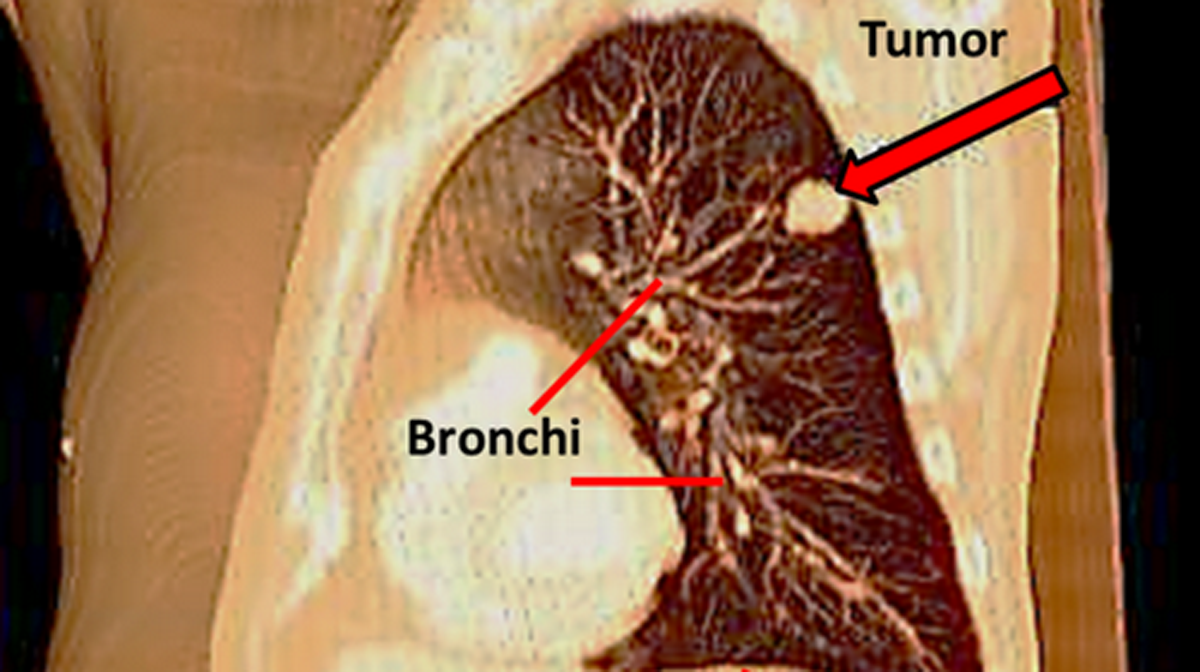Table of Contents
Conventional therapy has relied upon chemotherapy, surgery and radiation therapy for treating lung cancer. However, because of a vast amount of research going in the field of lung cancer, it is now possible to diagnose the disease early, and to begin the treatment more promptly.

These days, there are newer forms of surgery, new chemotherapeutic agents, and better radiation techniques. Work is being going on to prevent the development of lung cancer. There are better targeted therapies for lung cancer which act specifically at the tumor site preventing damage to the healthy cells. Research is even going on to develop vaccines against lung cancer.
Let us discuss some of these new developments in the treatment of lung cancer.
New medicines for chemotherapy
Researchers are coming up with newer and better chemotherapeutic agents. Some of the most promising ones are:
- Amrubicin: It belongs to the group of anthracyclines which have been used to treat SCLC. However, the currently used medicines of the anthracycline group are associated with marked cardio-toxicity. Amrubicin has been found to be equally effective against SCLC but without the side effect of cardio-toxicity. It has been granted fast track designation for treating SCLC after using first line chemotherapy.
- Nab-paclitaxel: Research is being carries out to find its use in treating NSCLC. Paclitaxel is used for treating lung cancer but nab-paclitaxel has been found to have a quicker action with less side-effects.
Targeted therapies for lung cancer
This is the area of most active research in the field of lung cancer treatment. Many clinical trials are going on to try new targeted therapies for different forms of lung cancer. Some of them are:
- Cetuximab: This drug has shown promising results in treating NSCLC, wherein it improves the survival rate. It is a monoclonal antibody and inhibits the action of epidermal growth factor.
- MetMAb: This is again a monoclonal antibody. When used along with erlotinib, it has been found to be useful in NSCLC.
- Afatinib: Currently used epidermal growth factor receptor (EFGR) inhibitors like erlotinib stop acting after some time as the EFGRs undergo mutation. So, the tumor cells develop resistance against these drugs. Afatinib is a new generation tyrosine kinase inhibitor (TKI) and researchers believe it may overcome the problem of resistance seen with current generation EFGR inhibitors.
- Gilotrif: Gilotrif is also a TKI. It is meant to be used in patients wherein the tumor cells have undergone EGFR exon 19 deletions or exon 21 L858R substitution gene mutations. These mutations develop in 10% of NSCLC cases and the current generation EGFR inhibitors become useless in these cases. The US FDA has approved the use of Gilotrif in patients with late stage NSCLC with EGFR gene mutations. These mutations are detected with the help of an FDA approved test kit called as therascreen EGFR RGQ PCR Kit.
- ALK inhibitors: These are being tested to be used in patients with anaplastic lymphoma kinase (ALK)-positive lung cancer.
Vaccines to treat lung cancer
Research is being carried out to develop vaccines that activate the body’s immune system in a manner that is recognizes the tumor cells and acts against them. For this, the scientists are taking genetic material present in the tumor cells to create the vaccines.
- MAGE A3 ASCI (Antigen-Specific Cancer Immunotherapeutic): Around 30 to 40% of patients suffering from NSCLC test positive for MAGE A3, a tumor antigen. Researchers are trying to use MAGE A3 ASCI in patients of NSCLC which test positive for MAGE A3 antigen.
Chemoprevention
This is again an exciting avenue for research. Scientists are focusing on drugs which have the potential to decrease the risk of lung cancer. One promising agent is oral Iloprost. This medicine is presently used in the treatment of pulmonary hypertension but when used in non-smokers, it was found to limit the damage to lung and reduce the risk of developing lung cancer.
We are living in exciting times where a lot of work is being done to find new ways to treat lung cancer.
- “FDA approves new treatment for a type of late-stage lung cancer”, published on June 12, 2013 at the FDA site, accessed on October 29, 2013
- “New ALK Agents: Lung Cancer's 'Second Miracle'?” by Scagliotti GV and Camidge R, published on October 7, 2013 at the Medscape site, accessed on October 29, 2013
- “New Treatment Directions”, published at the site Lung Cancer Alliance, accessed on October 29, 2013.
- Photo courtesy of Sam Galison by Flickr : www.flickr.com/photos/samgalison/2064361316/
- Photo courtesy of 7mike5000 by Wikimedia Commons : simple.wikipedia.org/wiki/File:Tumor_in_L._lung-3D_CT_volume_rendering.png

